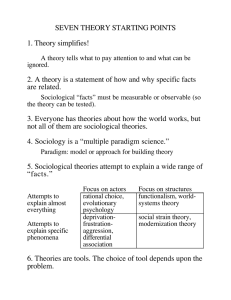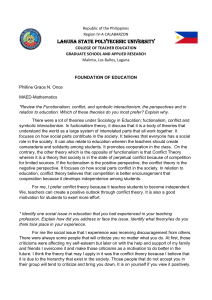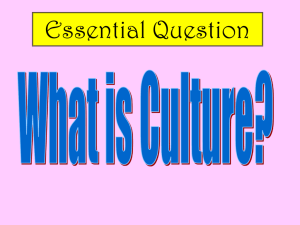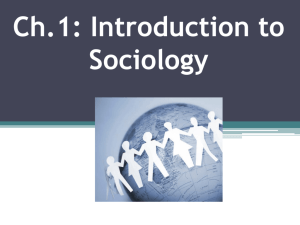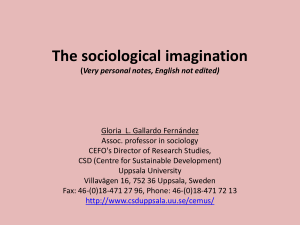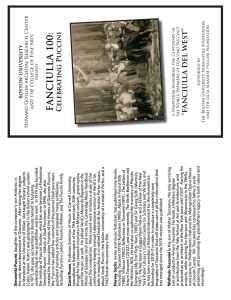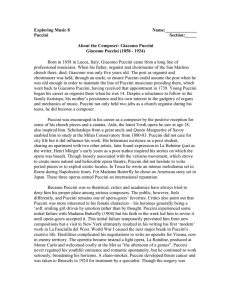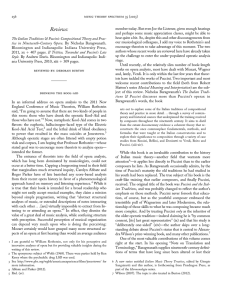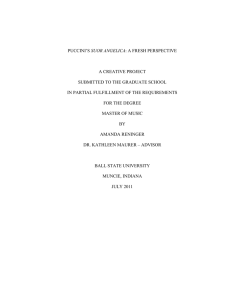Advance B RWG Puccini Intro to Sociology Notes http://freebooks
advertisement
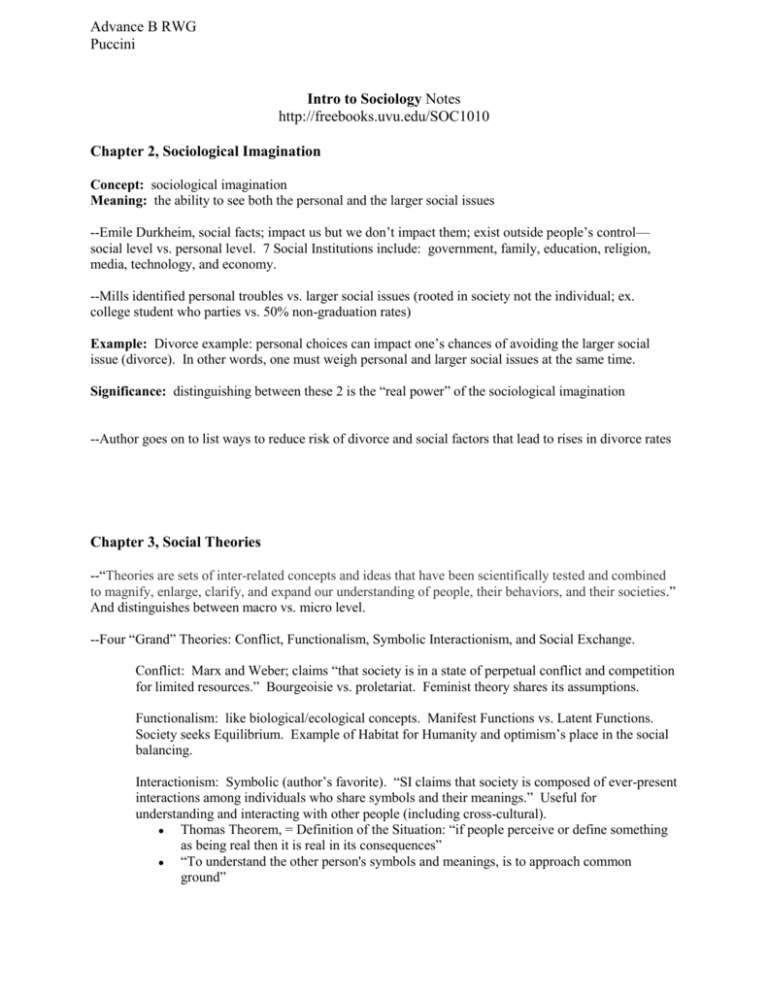
Advance B RWG Puccini Intro to Sociology Notes http://freebooks.uvu.edu/SOC1010 Chapter 2, Sociological Imagination Concept: sociological imagination Meaning: the ability to see both the personal and the larger social issues --Emile Durkheim, social facts; impact us but we don’t impact them; exist outside people’s control— social level vs. personal level. 7 Social Institutions include: government, family, education, religion, media, technology, and economy. --Mills identified personal troubles vs. larger social issues (rooted in society not the individual; ex. college student who parties vs. 50% non-graduation rates) Example: Divorce example: personal choices can impact one’s chances of avoiding the larger social issue (divorce). In other words, one must weigh personal and larger social issues at the same time. Significance: distinguishing between these 2 is the “real power” of the sociological imagination --Author goes on to list ways to reduce risk of divorce and social factors that lead to rises in divorce rates Chapter 3, Social Theories --“Theories are sets of inter-related concepts and ideas that have been scientifically tested and combined to magnify, enlarge, clarify, and expand our understanding of people, their behaviors, and their societies.” And distinguishes between macro vs. micro level. --Four “Grand” Theories: Conflict, Functionalism, Symbolic Interactionism, and Social Exchange. Conflict: Marx and Weber; claims “that society is in a state of perpetual conflict and competition for limited resources.” Bourgeoisie vs. proletariat. Feminist theory shares its assumptions. Functionalism: like biological/ecological concepts. Manifest Functions vs. Latent Functions. Society seeks Equilibrium. Example of Habitat for Humanity and optimism’s place in the social balancing. Interactionism: Symbolic (author’s favorite). “SI claims that society is composed of ever-present interactions among individuals who share symbols and their meanings.” Useful for understanding and interacting with other people (including cross-cultural). ● Thomas Theorem, = Definition of the Situation: “if people perceive or define something as being real then it is real in its consequences” ● “To understand the other person's symbols and meanings, is to approach common ground” Advance B RWG Puccini Social Exchange claims that society is composed of ever present interactions among individuals who attempt to maximize rewards while minimizing costs. ● (REWARDS - COSTS) = OUTCOMES ● Equity is a sense that the interactions are fair to us and fair to others involved by the consequences of our choices

